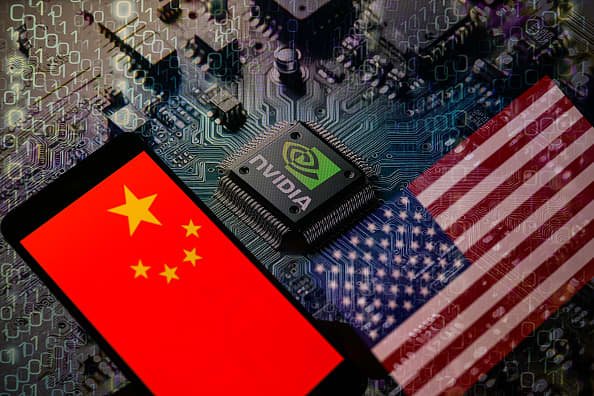Morgan Stanley updated its capex forecast for the four hyperscalers, expecting the spending to grow to $367 billion in 2026 from $315 billion in 2025.Morgan Stanley updated its capex forecast for the four hyperscalers, expecting the spending to grow to $367 billion in 2026 from $315 billion in 2025. Big Tech’s decision to go full steam ahead on its capital spending plans is reviving up sentiment among Wall Street analysts, who are now raising their estimates on key artificial intelligence players despite the emergence of China’s rival DeepSeek lab that temporarily shook the trade. U.S. technology hyperscalers Amazon , Microsoft , Google and Meta Platforms are each ramping up their AI-related capital expenditures despite concerns over mounting expenses and the delayed profit payoff. Anxiety around the effect of China’s entrance into AI has only added to the urgency for these companies, which are relying on heightened investment in AI infrastructure — such as data centers and graphics processing units — to lead to more computing power and, ultimately, revenue. Combined spending from the four tech giants is set to exceed $315 billion in their current fiscal year. Morgan Stanley analyst Brian Nowak updated his capex forecast for the four hyperscalers, expecting spending will surge to $367 billion in 2026. While he agrees with the foundation of the Big Tech investments, he acknowledges that questions over the return on invested capital “will remain in focus.” Morgan Stanley also reiterated Nvidia as a top pick earlier this week. Faster capex growth UBS raised its estimated “Big 4” capex spending this year, forecasting it to grow 35% year over year, up from a previous forecast of 25%. That means their combined capex should reach more than $300 billion this year, significantly higher than what they committed in 2024 and more than double from the year prior to that, UBS equity strategist Sundeep Gantori wrote in a Thursday note to clients. “Contrary to the general perception that low-cost models like DeepSeek will result in near-term cuts to AI capex, we are actually raising our Big 4 capex estimates based on solid big tech guidance during the 4Q24 reporting season and a strong demand outlook for frontier models,” Gantori said. “We believe the recent correction in AI compute stocks is overdone,” Gantori added. According to Gantori, the recent correction in chipmakers Nvidia and Broadcom was exaggerated, given strong trends in AI adoption and compute spending. Nvidia and Broadcom were among the biggest losers of the brief Jan. 27 sell-off in technology stocks, fueled by anxiety over Chinese startup DeepSeek’s low-cost AI model that used less-efficient Nvidia chips to create a chatbot rivaling OpenAI’s ChatGPT. Dip buying Nvidia shares are down roughly 8.2% over the past month, after losing nearly 17% the day of the tech sell-off. Broadcom, meanwhile, plunged more than 17% that day and is still in the red this year. Both Nvidia and Broadcom have since rallied back owing to a “buy the dip” mentality in AI stocks. “Investors can take advantage of heightened volatility through structured strategies and by buying the dip in quality AI stocks, as we believe the focus will eventually return to robust fundamentals,” Gantori said. AVGO 1Y mountain Broadcom shares over the past year Analysts at Melius Research named Nvidia, Broadcom, Marvell Technology and Arista Networks as beneficiaries of higher capital spending, which the firm said will continue to drive demand for GPUs, custom silicon and networking. Monetization , the eventual conversion of all those billions in investment into revenue-generating assets, will be a key focus for hyperscalers moving forward, Melius noted. “The initial reaction to the ‘DeepFreak’ seems to [be] spend more, not less,” Ben Reitzes, head of technology research at Melius Research, wrote in a Friday note. “The issue for the big clouds is how to monetize AI faster as free cash flow takes another big hit. Real free cash flow matters,” Reitzes added.
Discover more from World Byte News
Subscribe to get the latest posts sent to your email.


